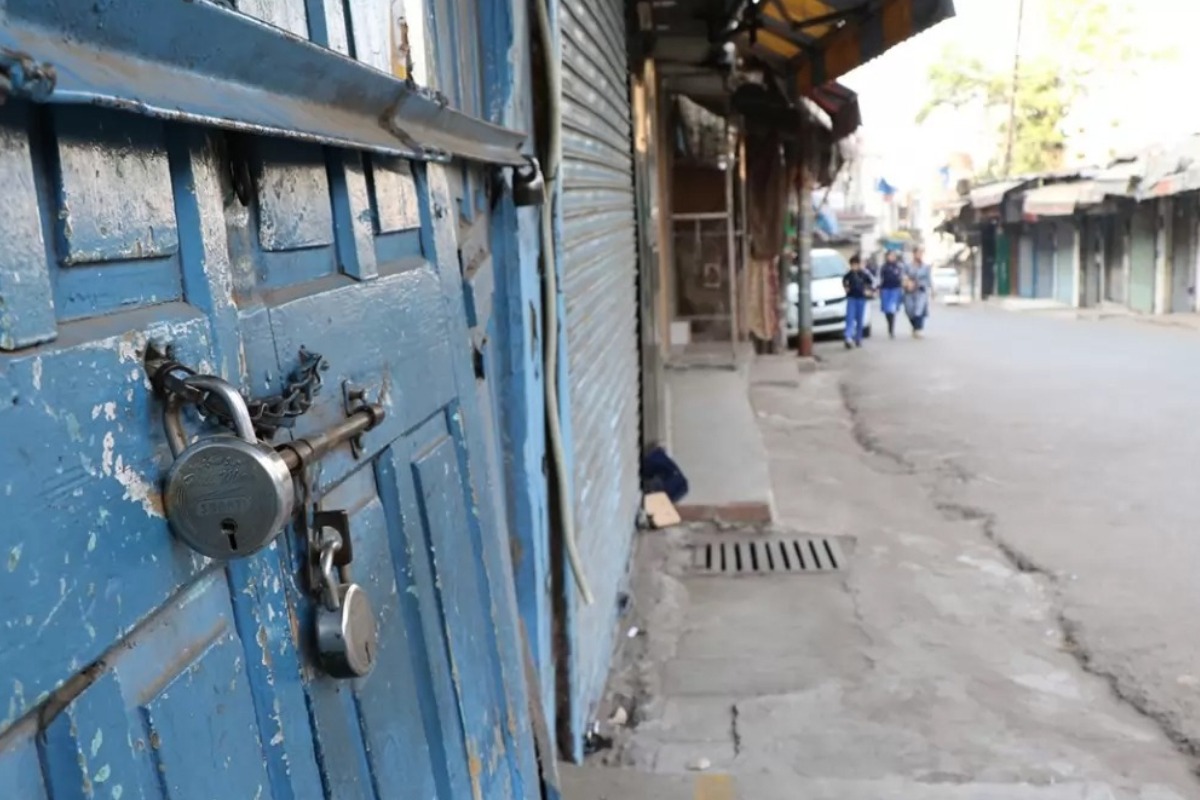Normal life remained disrupted as trade bodies and lawyers observed a day-long strike in Jammu on Saturday against the J&K government’s decision to impose property tax in the Union territory.
A bandh call was given by the Jammu Chamber of Commerce and Industries (JCCI) along with other trade bodies to protest LG Manoj Sinha’s decision to impose property tax for the first time in Jammu and Kashmir from April 1, 2023.
It was supported by the Jammu chapter of the Jammu and Kashmir High Court Bar association. The transport association of Jammu Kashmir, however, opposed the call.
The bandh call evoked a mixed response with most commercial establishments shutting down their shutters but the public transport was plying normally. Lawyers also suspended all work.
Almost all Opposition parties, including the National Conference, the Congress, the Democratic Azad Party, and the National Panthers Party, supported the bandh. The Yuva Rajput Sabha also took out a peaceful march from Bohri to Talab Tiloo on the outskirts of the city.
The government recently notified the imposition of property tax in municipal areas. The tax rates will be 5 per cent of the annual taxable value for residential properties and 6 per cent for commercial properties.
Meanwhile, LG Singha said, “The people of J&K are wise and intelligent. They understand the situation very well.”
He further said that the interests of the people of J&K have been given top priority while framing the property tax policy. “The tax amount fixed is one-tenth of the tax being paid by residents of Shimla in Himachal Pradesh, Ambala in Haryana, and Dehradun in Uttarakhand,” Sinha stated.
He also said there will be no tax on property in rural areas and 40 per cent population in urban areas, where 40 per cent of people have to pay around ₹1000 annually.
The LG also said that there are 1.01 lakh shops, out of which 46 per cent of shops fall below 100 square feet and have to pay around ₹700 annually and 36,000 shops only ₹2000 annually on account of property tax.
‘We have issued toll-free numbers and sought suggestions from the public if they feel there is a scope for improvement. If there is a need for any relief, we will definitely give it to the public,” Sinha said, adding his doors are open for dialogue on the issue.
Meanwhile, JCCI President Arun Gupta warned that the protests could intensify in the future, asserting that Saturday’s strike was “symbolic” as “the administration is not listening to anyone and are instead coming out with statements to hoodwink the public”.
“The business community is already paying taxes to the government through GST. If the government does not wake up, we will intensify our protest,” Gupta warned.









